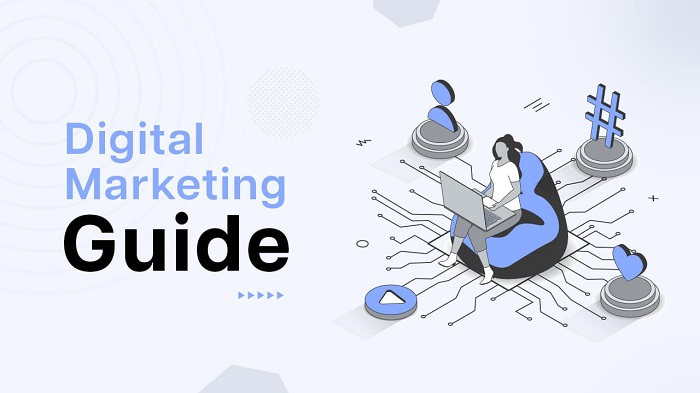Comprehensive Guide to Modern Internet Marketing

In today’s fast-paced digital landscape, internet marketing has evolved into a multifaceted approach that encompasses various strategies aimed at reaching a broader audience. Businesses must adapt to these changes to stay competitive and effectively engage with their target markets. This comprehensive guide will walk you through the essential aspects of modern internet marketing, including VPS hosting, banner advertising, and other crucial strategies.
VPS Hosting: A Foundation for Successful Internet Marketing
VPS (Virtual Private Server) hosting plays a pivotal role in internet marketing by providing a stable and reliable platform for your website. Unlike shared hosting, VPS hosting offers dedicated resources, ensuring faster load times and better performance. This enhances user experience, which is crucial for retaining visitors and improving search engine rankings.
Moreover, VPS hosting allows for greater customization and control over your server environment. This flexibility is essential for implementing advanced marketing tools and analytics. By choosing a reputable VPS hosting provider, businesses can ensure their website is always accessible and secure, thus building trust with their audience.
The Power of Banner Advertising
Banner advertising remains a vital component of online marketing strategies. It involves placing visually appealing ads on relevant websites to attract potential customers. Effective banner ads are designed to capture attention and drive traffic to your website or landing page.
To maximize the impact of banner advertising, it’s essential to target the right audience. This can be achieved by selecting websites and platforms where your potential customers are likely to visit. Additionally, utilizing A/B testing to compare different banner designs and messages can help in optimizing the performance of your ads, ensuring higher click-through rates and conversions.
Social Media Marketing: Engaging with Your Audience
Social media platforms have become indispensable tools for internet marketing. They offer businesses a unique opportunity to engage directly with their audience, build brand awareness, and foster customer loyalty. Effective social media marketing involves creating and sharing content that resonates with your audience while encouraging interaction and feedback.
To succeed in social media marketing, it’s crucial to understand the demographics and preferences of your target audience. Tailoring your content to match their interests can significantly enhance engagement. Additionally, leveraging analytics tools to track the performance of your social media campaigns helps in making data-driven decisions and refining your strategies for better results.
Collaborating with influencers and running targeted ad campaigns are also effective tactics for reaching a wider audience and boosting brand visibility on social media platforms. By consistently delivering valuable content and interacting with your followers, you can establish a strong online presence and drive long-term growth.
Email Marketing: Personalizing Your Outreach
Email marketing remains one of the most effective ways to reach your audience with personalized messages. By segmenting your email list based on customer behavior and preferences, you can tailor your content to address their specific needs and interests. This level of personalization increases the likelihood of engagement and conversions.
Implementing automated email campaigns can streamline your marketing efforts, allowing you to nurture leads and maintain regular communication with your subscribers. Additionally, incorporating visually appealing designs and compelling calls-to-action in your emails can further enhance their effectiveness.
Regularly analyzing the performance of your email campaigns through metrics such as open rates, click-through rates, and conversion rates is essential for continuous improvement. By understanding what works and what doesn’t, you can optimize your email marketing strategy to achieve better results.

Content Marketing: Providing Value to Your Audience
Content marketing is a strategic approach focused on creating and distributing valuable, relevant, and consistent content to attract and retain a clearly defined audience. High-quality content not only helps in building trust with your audience but also plays a crucial role in improving your website’s search engine ranking.
Creating a content calendar and regularly publishing blog posts, articles, videos, and infographics can keep your audience engaged and informed. It’s important to focus on topics that address the pain points and interests of your target audience, providing them with solutions and insights.
Incorporating SEO best practices in your content ensures that it is easily discoverable by search engines and your audience. This includes using relevant keywords, optimizing meta descriptions, and ensuring your content is mobile-friendly. By consistently delivering valuable content, you can establish yourself as an authority in your industry and drive organic traffic to your website.
Pay-Per-Click (PPC) Advertising: Driving Targeted Traffic
PPC advertising is a powerful tool for driving targeted traffic to your website. By bidding on relevant keywords, businesses can display their ads to users who are actively searching for related products or services. This increases the chances of attracting high-quality leads that are more likely to convert.
To get the most out of your PPC campaigns, it’s important to conduct thorough keyword research and create compelling ad copy that resonates with your target audience. Utilizing negative keywords can help in filtering out irrelevant traffic, ensuring your budget is spent effectively.
Regularly monitoring and optimizing your PPC campaigns based on performance data can significantly improve their effectiveness. This includes adjusting bids, testing different ad variations, and refining your targeting parameters. By continuously optimizing your PPC strategy, you can achieve a higher return on investment and drive sustained growth for your business.
